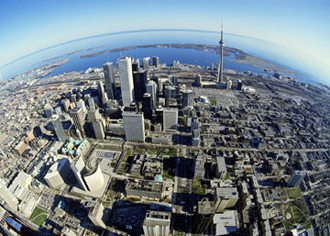Business Travel Expenses
Sounds Simple But Is It?
Business travel expenses are the cost that you occur when travelling on business. This sounds relatively straight forward, but unfortunately it not always so.
There are some grey areas and some room for different interpretations. Are all expenses that occur during business trip deductable business expenses?

Not all business expenses
can be claimed as business expenses
Can you take your family with you on a business trip? How about travel expenses that occurred while you were setting up your new business? Does it make difference if you are travelling abroad or domestically?
There are many questions that can surface when dealing with business expenses and not always straightforward answers.
We at Top Travel Tips will address the topic of business travel expenses in general terms. You must always follow your local laws and regulations and seek professional advice as applicable.
What Are Business Travel Expenses?
The first unbreakable rule is that business travel expenses must be ordinary and necessary. What does this mean? This leaves some room for interpretations but in principle...
Travel expenses that you need to incur in order to operate your existing business, or to satisfy your job duties, are necessary business expenses. Ordinary travel expenses, on the other hand, are typical expenses related to travelling, like airfare, car rentals, taxi journeys, communication cost, business meals, etc.
Prepaid Currency Cards are convenient and economical way of paying for travel expenses abroad. They can save your company substantial amount of money on currency exchange
Ordinary and necessary is however not enough, your business travel expenses must also be reasonable. This leaves some room for interpretations as what one considers reasonable might be very unreasonable to someone else.
What is reasonable is normally defined as expenses that are reasonable considering the “facts and circumstances”. For example, first class flight can be considered reasonable for the CEO of an international multi company but unreasonable for the owner of a small company that is just break even.
Business travel expenses not only have to be necessary, ordinary and reasonable, they must also be for business purposes only.
That includes, but is not limited to, expenses incurred in order to gain new customers, meet current customers, investigate competition, improve education or skills related to the business (seminars, training), or to raise capital (loan, seek investors).
Business purpose only is not enough, the business travel expenses must be incurred for an existing business only.
This means you cannot deduct travel expenses related to acquiring or starting new business. Those travel expenses are part of the startup cost and should be capitalized and then depreciated over number of years.
If you are travelling abroad on business then all cost for getting to and from your business destination is deductable. However, if you spend part of your time abroad on personal business then you might have to allocate the cost proportionally between business and private expense.
This is likely to depend on the length of your journey and the amount of time spent on business activities. If your trip is mainly for personal purposes then the entire cost of the trip might be nondeductible personal expense.
If you are travelling domestically on business, then it depends on if you have stay overnight away from your tax home or not.
It is considered local business trip if you have to stay overnight away from you tax home and then the same applies as if you were travelling internationally, i.e. all cost getting to and from your business destination is deductable.
If you do not have to stay away overnight, then the trip is local same day business excursion and must qualify as such for your business travel expenses to be deductable. This means the trip must be a reasonable distance from your tax home and for business purposes only.

You can not claim expenses
for personal travel as business expenses
Tax home is normally considered the entire area where your main place of business is located, i.e. regardless of where your family home is.
This means that if you live in one place and work in another, then your travel cost to get to work is not for business purposes and hence not allowable business expenses.
Many business travelers like to combine travelling for business and pleasure. This is not a problem as long as you know what allowable business expenses are and you make clear distinction between business and private expenses.
Tax authorities in all countries look out for business travelers that might be tempted to classify nondeductible personal trip as a deductible business trip. Make sure you follow your local rules meticulously.
You can usually only deduct your travel expenses to and from a destination if the trip is primarily related to your business. However, if the purpose of you trip is primarily for personal reasons, then you cannot deduct any of your travel expenses, i.e. flight, hotel or other travel expenses.
It does not matter if you engage in some business activities while there. Visiting client while on vacation or taking phone calls or answering e-mails, will not make your personal trip a business trip. You can though deduct any direct and normal expenses you incur related to your business, like the taxi fare for your business appointment, or communication cost.
As before, the facts and circumstances are the deciding factors if your trip is considered primarily for business or pleasure. The amount of time spent on business activities compared to your private activities is usually what matters most. You should always play by the rules.
List Of Deductable Travel Expenses
The US Internal Revenue Service offers travel expense deduction tips and publishes a list of deductible travel expenses while away from home. Deductable travel expenses include, but are not limited to, the costs of:
- Travel by plane, train, car or bus between your home and business destination
- Taxi fare or use of car at your business destination
- Meals, accommodation and related services, e.g. dry cleaning (including tips)
- Business calls
- Other ordinary and necessary expenses related to your business travel, e.g. equipment rental fees
We recommend familiarizing yourself with the local business travel expenses rules and regulations and seek professional advice if anything unclear.
Travel Expense Report
The following tips are useful if you want to spend as little time as possible on doing your travel expense report.
In order to be able to claim business travel expenses you must keep satisfying records of your travels. You must be able to show the invoices and prove the existence, amount, and business purposes of your travel expenses. So make sure you keep your records up to date and in perfect manner.
It is good practice to keep all receipts in one place when travelling, consider using special wallet, or envelop for them.
Claim your business travel expenses as soon as you get back from your business trip. That way you are less likely to lose any receipts or mix your expenses up with your next business trip.
Ps. you should also make a habit of preparing your Business Travel Report as soon as you get back from your business trip.
Advertisment
Go To Top Travel Tips Home Page
Return From Business Travel Expenses To Business Travel Tips


